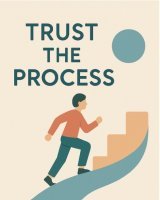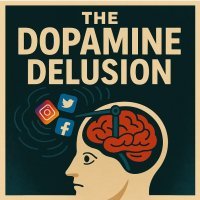You Are Not Your Thoughts
The 4 Stages To Dealing With Your Thoughts
How To Escape This Ferris Wheel Of Suffering

You are not your thoughts, at least that's what your rational mind tells you most of the time, but that's definitely not how it feels at 3 am when you have woken up and can’t get back to sleep.
You lie in
bed tossing and turning and as your brain wakes up that little voice in
your head that starts nagging you with doubts and fears about money… and your
business failing… about being unemployed (again)… about being
unemployable… you try and ignore it but you can’t.
Later that day
you are outside in the countryside, enjoying a walk in a forest, and
feeling relaxed. You feel your phone vibrate in your pocket.
You try and ignore it, but it keeps on vibrating, and in a milli-second your mind is flooded with thoughts:
“What if there’s been an accident… Oh no it’s probably from work to tell me a client project has got delayed, and you need this project because you are self-employed…Oh dear god, I hope my (elderly) mother hasn’t had another fall and hurt herself again…”
On the drive back there is a news item on the
radio rattling out statistics about the Covid-19 related number of
business failures in your region… suddenly you are overwhelmed with
feelings of anxiety and fear…and your brain is flooded with thoughts of
financial disaster.
Thoughts… thoughts… thoughts!
3 Core Beliefs
How do we deal with our negative thoughts: thoughts of anger, accusation and despair?
I
am not a counsellor or therapist nor in way trained to offer any form
of professional advice in dealing with these issues. What I am going to
share with you here are my own personal experiences of addressing these
issues and suggestions as to what has worked for me.
I must declare three core beliefs that I have and that underpin my take on you are not your thoughts:
- I am interested in what works. I am interested in approaches, tools and techniques that I can apply and put into practice. I only want to be informed about something to the extent that it helps me apply a potential solution that may be resourceful and beneficial to me.
- I see the universe as energy based, thus we live in an energetic universe . This perspective is science based and proven.
- I see that we live in a participatory universe. This perspective is supported by science but not yet fully proven by science.
We are going to cover a lot of ground here and in the follow-up article
and I am including many links to third party resources and other
articles on this site that will provide a more holistic
understanding. I encourage you to follow up and read this material.
In
dealing with our thoughts, I have found that there are four stages:
awareness of our thoughts; understanding our thoughts; accepting our
thoughts; and, living with our thoughts.
The best way of becoming aware of your thoughts is mindfulness practice. Zen master Thich Nhat Hanh defined mindfulness as: “…the energy of being aware and awake to the present moment…” How to practice mindfulness? Understanding the basics of mindfulness meditation technique is fundamentally very simple – the hardest part is to just do it!
Put simplistically, we can understand the origin of these thoughts from two perspectives: [1] The Hardware This is the physiology - the parts of your brain - that creates these thoughts. The Chimp Model explains this and how it generates many of our unconscious and automatically arising thoughts.
Professor William Irvine - Evolutionary Psychology - extract from Stoicism & Framing
[2] The Software This is the conditioning from our primary caregivers and dominant adult figures in our childhood that creates these thoughts.
The mindfulness practices outlined
above will go a long way to helping you develop considerable self
awareness and insight into the causes and nature of your negative
thoughts and the realisation that you are not your thoughts.
You Are Not Your Thoughts: (1) AWARENESS
It is helpful to understand that:
If you are new to mindfulness practise and you are struggling to bring
your unconscious mental activity into conscious awareness as thoughts,
pay very close attention to your emotions.
Your (unconscious) thoughts are always reflected in your body as emotions. So ask yourself: "What am I feeling?"
Mindfulness
practice will enable you to watch and observe your emotions and
emotional states as they arise, and will empower you to not become
totally immersed and identified with them.
To make a start with this practice here are 6 basic exercises.
Also, follow these simple instructions for understanding the basics.
After
some practice of mindfulness and with a developing awareness of
previously unconscious thoughts as they arise, three things become
apparent:
You Are Not Your Thoughts: (2) UNDERSTAND
This
is centred on the amygdala, a major emotional centre in the limbic
system. This is responsible for our flight / fight response.
These
thoughts are non-rational and largely driven by survival instincts and
pleasure instincts - sometimes referred to as our "animal nature".
Many of our negative thoughts stem from this region of the brain.
This is a vast subject and there are many psychological models and interventions used to address and "repair" this conditioning.
For simplicity, if we use Buddhist terminology there are three concepts to frame this:
Think of this as a ferris wheel of suffering!
You Are Not Your Thoughts: (3) ACCEPT
There is a vast industry of professional psychologists,
therapists and counsellors offering a wide variety of interventions,
coping strategies and potential solutions. For many people this level of
professional assistance is necessary and beneficial.
However
there are probably an even greater number of us who either just struggle
on and do our best, or who seek to apply the insights gained from these
practices to help ourselves work to a position of deep understanding that you are not your thoughts. I suggest 3 keys:
You Are Not Your Thoughts: (4) LIVING
Video:
Most of us believe the thoughts we hold about ourselves to be true. But: ‘Is it true?‘
Who would you be without your story?
Further Reading On This Site:
Universal Awareness and the Machinery of Thought
Rewiring Your Autopilot – How To Harness Your Subconscious Mind
The Battle For Your Mind - How To Win Inner Freedom In A Digital Age
Why You Need To Be Intimate With Your Own Thinking
I Do Not Feel Like It - Feelings, Resistance And How To Take Action
Third Party Reading:
How to Make Friends with Your Beautiful Monsters
5 Buddhist Teachings on Working With Habitual Patterns of Thought
Return from "You Are Not Your Thoughts" to: Renewing Your Mind
Or Return to: Techniques For Stress Management
LATEST ARTICLES
The Battle For Your Mind - How To Win Inner Freedom In A Digital Age Of Distraction
 From External Events to Inner Events. We often think of “events” as things that happen out there: the traffic jam, the rude comment, the delayed email reply. But what truly shapes our experience is wh…
From External Events to Inner Events. We often think of “events” as things that happen out there: the traffic jam, the rude comment, the delayed email reply. But what truly shapes our experience is wh…How to See Your Thoughts Without Becoming the Story
 A Practical Guide to Thought-Awareness. You can spend your life inside the stories of your mind without ever learning how to see your thoughts clearly and objectively. Most of the stuff we tell oursel…
A Practical Guide to Thought-Awareness. You can spend your life inside the stories of your mind without ever learning how to see your thoughts clearly and objectively. Most of the stuff we tell oursel…The Collison Decision Matrix - A Simple Framework for Better Choices
 The Collison Decision Matrix Is A Practical Everyday Thinking Tool. Most of us spend a surprising amount of time worrying about decisions. From small ones such as what to wear, what to eat, what to te…
The Collison Decision Matrix Is A Practical Everyday Thinking Tool. Most of us spend a surprising amount of time worrying about decisions. From small ones such as what to wear, what to eat, what to te…The Power Of Asking The Right Question
 The Power Of Asking The Right Question Lies In The Quest For Insight. To experience the power of asking the right question you must develop the practice of asking questions. The best way to improve th…
The Power Of Asking The Right Question Lies In The Quest For Insight. To experience the power of asking the right question you must develop the practice of asking questions. The best way to improve th…Site Pathways
 Here is a site pathway to help new readers of Zen-Tools navigate the material on this site. Each pathway is based around one of the many key themes covered on this site and contain a 150 word introduc…
Here is a site pathway to help new readers of Zen-Tools navigate the material on this site. Each pathway is based around one of the many key themes covered on this site and contain a 150 word introduc…How To Live With Contradiction - Beyond Thought Let Stillness Speak
 A major impact on so many peoples' lives is the situational contradiction of unfilled realistic expectations. So where does all this leave us? Well here we are, with mental equipment that is more lim…
A major impact on so many peoples' lives is the situational contradiction of unfilled realistic expectations. So where does all this leave us? Well here we are, with mental equipment that is more lim…How To Trust The Process Of Mindfulness - Right Now
 In mindfulness, the process isn’t some distant goal — it's what is happening right now. When we talk about how to trust the process of mindfulness the credibility of the process is heavily dependent…
In mindfulness, the process isn’t some distant goal — it's what is happening right now. When we talk about how to trust the process of mindfulness the credibility of the process is heavily dependent…Inner Mastery For Outer Impact - Mental Clarity For Effective Action
 Insights only matter if they translate into consistent action. In a world crowded with quick fixes and motivational soundbites, the theme “Inner Mastery for Outer Impact” calls us to something more e…
Insights only matter if they translate into consistent action. In a world crowded with quick fixes and motivational soundbites, the theme “Inner Mastery for Outer Impact” calls us to something more e…The Wise Advocate - Helping You Achieve The Very Best Outcome
 The focus of your attention in critical moments of choice either builds or restricts your capacity for achieving the best outcome. When we talk of 'The Wise Advocate' its easy to think of the consigl…
The focus of your attention in critical moments of choice either builds or restricts your capacity for achieving the best outcome. When we talk of 'The Wise Advocate' its easy to think of the consigl…Trust The Process - Beyond The Cliche
 The phrase "trust the process" has become a cliche, the woo-woo mantra of the "self help" industry. Those three little words feel like they ought to mean something useful but hidden behind them are a…
The phrase "trust the process" has become a cliche, the woo-woo mantra of the "self help" industry. Those three little words feel like they ought to mean something useful but hidden behind them are a…The Dopamine Delusion - Why Anticipation Beats Achievement
 The thrill we feel is not in the having, but in the wanting. The more we have, the more we want. The more things we acquire and the easier things get for us, the more discontent we feel. The more spo…
The thrill we feel is not in the having, but in the wanting. The more we have, the more we want. The more things we acquire and the easier things get for us, the more discontent we feel. The more spo…The Power Of Silence Is Experienced In Your Use Of Language
 Practise the "Beneficial Neurological Delay" for optimal comprehension. The power of silence is experienced in your use of language, specifically: - How you formulate the words you use to think and in…
Practise the "Beneficial Neurological Delay" for optimal comprehension. The power of silence is experienced in your use of language, specifically: - How you formulate the words you use to think and in…